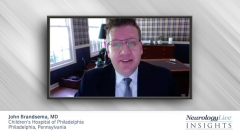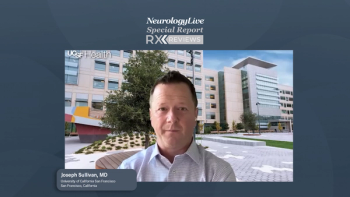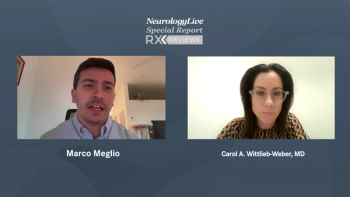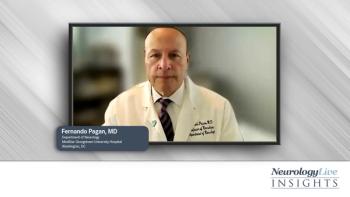
Bridging the Gaps in Duchenne Muscular Dystrophy: Multidisciplinary Approaches for Better Outcomes
Duchenne Muscular Dystrophy progresses with motor delays, varying deterioration rates, and impacts multiple organs, highlighting the need for early intervention.
Episodes in this series

Summary for Physicians:
Treatment Considerations for Early-Diagnosed Duchenne Muscular Dystrophy (DMD)
For patients diagnosed early in life, the following treatment strategies are crucial:
- Standard of Care
- Following the standard of care is the most effective way to improve prognosis and quality of life. Early treatment leads to better long-term outcomes.
- Steroid Use
- Steroids can now be started as early as 2 years of age (previously, they were started around 5 years). Steroids are critical in slowing disease progression, but they come with side adverse effects, which need to be managed.
- Exon-Skipping Therapies (PMOs)
- Exon-skipping therapies (e.g.eg, phosphorodiamidate morpholino oligomers) is are an option for patients with specific deletions. For example, exon 44 skipping helps around 9% of patients. Though it requires weekly infusions, it has shown positive effects on respiratory, cardiac, and upper extremity function.
- Gene Therapy
- Gene therapy has been approved for children 4 years and older, with certain genetic criteria (e.g.eg, no deletions on exons 8 or 9). Gene therapy can help restore dystrophin production, slowing disease progression.
- Adjunctive Treatments
- New therapies, used alongside steroids, focus on reducing chronic inflammation, fat deposition, and fibrosis, improving the environment around muscle cells. These therapies help patients manage some of the chronic effects of DMD.
- Importance of Early Diagnosis
- Newborn screening plays a vital role in diagnosing DMD earlier, leading to earlier intervention, which can dramatically improve the course of the disease.
Advice for Neurologists and General Physicians
When diagnosing and treating patients with DMD, it’s important to keep the following points in mind:
- Multidisciplinary Approach
- Establish a multidisciplinary team. While it’s challenging to coordinate all specialists for regular clinic visits, having access to cardiologists, pulmonologists, and physical therapists makes a significant difference in patient outcomes.
- Collaboration with Other Specialists
- Even if you can’t have gather all specialists on the same day, maintain strong relationships with them. Educate other specialists about DMD and involve them in trials or meetings to spark interest and improve care.
- Guidelines and Education
- Follow established guidelines for care, and continually educate yourself and your team about advances in neuromuscular disease management. The neuromuscular field is evolving rapidly, and staying informed is key to providing the best care.
- Adult Care Needs
- There is a critical need for improved adult care. Many patients graduate from pediatric care at age 18 to -21, but transitioning to adult care is difficult. Developing multidisciplinary care for adults with DMD is a significant area for improvement moving forward.
By focusing on early diagnosis, coordinated care, and ongoing education, physicians can greatly improve both the quality of life and disease trajectory for patients with DMD.
Newsletter
Keep your finger on the pulse of neurology—subscribe to NeurologyLive for expert interviews, new data, and breakthrough treatment updates.











